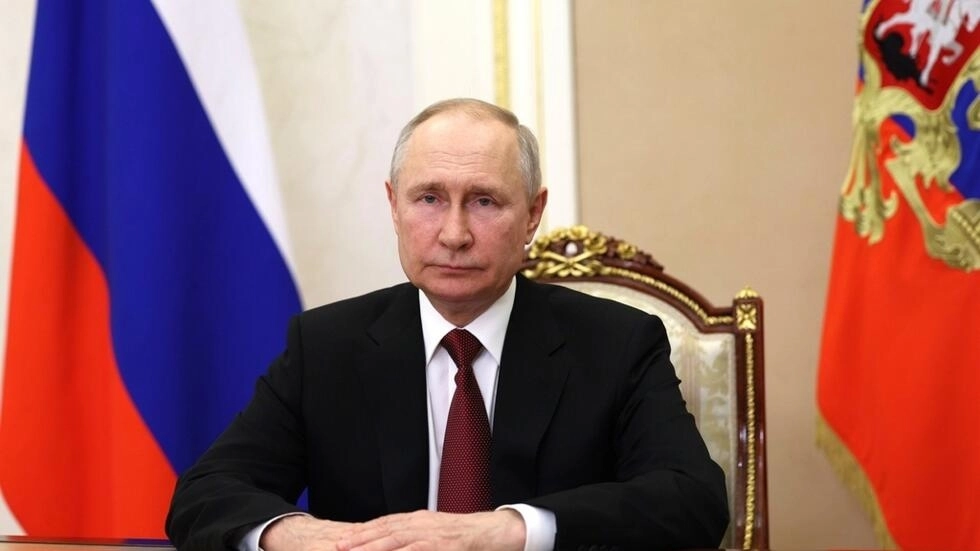Russian President Vladimir Putin reappeared on Monday (26) in a video released by the Kremlin in which he speaks for the first time since the foiled rebellion led by the founder of the Wagner paramilitary group over the weekend. In the video, Putin praises Russian companies for ensuring “the stable functioning” of the country’s industry “in the face of various external challenges.” For Western allies, however, the episode marks the fragility of power in Moscow, as new information emerges about the legal consequences for Yevgeny Prigozhin.
(RFI) In a bid to return to normalcy, Russia on Monday (26) suspended security measures put in place in Moscow during the Wagner paramilitary group’s rebellion, following an unprecedented crisis that has weakened President Vladimir Putin’s image. The end of the “anti-terrorist” regime was ordered in view of the “absence of threat to the lives” of the residents, said Moscow Mayor Sergei Sobianin, who thanked the “calm and understanding” of Muscovites.
The rebellion by the group founded by Yevgeny Prigozhin, a billionaire who was once an ally of Putin, lasted only 24 hours and ended Saturday night with an agreement between him and the Kremlin, after mediation by Belarusian President Alexander Lukashenko.
Yevgeny Prigozhin under investigation
The information initially released by the Kremlin was that with the agreement, Prigozhin, commander of the Wagner militia, had obtained immunity guarantees for himself and his fighters in exchange for an end to the rebellion. The Kremlin then announced that the businessman should go into exile in Belarus.
However, Russian news agencies reported Monday that the investigation against Prigojin remains open. “The case has not been closed, the investigation continues,” a source in the Russian Prosecutor General’s Office said, quoted by the three leading Russian news agencies.
Uncertainty also reigns over the whereabouts of the 25,000 men who supported the rebellion. Despite the apparent normalcy propagated by the authorities, with the release of images of Russian Defense Minister Serguei Shoigu reviewing Russian troops in Ukraine, the rapid adventure undertaken by the insurgents of the Wagner group has caused great commotion in Russia.
At the beginning of the rebellion, the founder of the Wagner group had vowed to “liberate the Russian people,” with particular criticism of his two great enemies: Defense Minister Serguei Shoigu and General Staff Commander Valeri Guerasimov, accused by Prigozhin of having sacrificed thousands of fighters in Ukraine.
The rebel forces even took control of several military units in the strategic southwestern Russian city of Rostov and advanced 600 km toward the capital Moscow, apparently without much difficulty.
But although the coup ended as abruptly as it began, the crisis represents the greatest challenge Vladimir Putin has faced since coming to power in 1999.
“Cracks” in power
For U.S. Secretary of State Antony Blinken, the crisis reveals “real cracks” in Putin’s authority. “The fact that there is someone from the inside questioning Putin’s authority and directly questioning why he initiated the aggression against Ukraine, that in itself is something very strong,” Blinken told the CBS News channel on Sunday.
In the same vein, European diplomacy chief Josep Borrell said Monday that the paramilitary rebellion shows that the offensive in Ukraine is “cracking down on Russian power and affecting its political system.”
For NATO Secretary General Jens Stoltenberg, “the weekend’s events are an internal Russian issue and a new demonstration of the major strategic mistake President Putin made with the illegal annexation of Crimea and the war against Ukraine.” He added that the Alliance also monitors the situation in Belarus since Moscow sent nuclear munitions to the country earlier this month. “We condemn Russia’s announcement about employing nuclear weapons. It is reckless and irresponsible,” Stoltenberg insisted. “We see no indication that Russia is preparing to use nuclear weapons, but NATO remains vigilant,” he warned.
Ukraine retakes Russian positions
In Ukraine, several analysts feel that the crisis in Russia could weaken Moscow’s troops at the front and benefit Kiev’s soldiers, who have been engaged in a difficult counteroffensive for some weeks now.
On Monday, Ukrainian Deputy Defense Minister Ganna Maliar announced that the Army has retaken 17 square kilometers from Moscow’s forces, which brings the total territory retaken to 130 square kilometers since the beginning of June.
The Ukrainian Army announced it had liberated Rivnopil, a town located 100 kilometers southwest of Donetsk on the southern front of the conflict, an area where Kiev troops have been advancing in recent weeks. The announcement of Rivnopil’s capture comes two days after the failure of the armed rebellion by the Wagner paramilitary group.
Russia admitted that it was waging fighting in this area on June 16, two weeks after the start of Kiev’s counteroffensive to recapture the territories occupied by Moscow.
EU Approves Sending More Money to Ukraine
European Union countries on Monday approved an additional €3.5 billion in military contributions to Ukraine, bringing the total to more than €12 billion.
“Today’s decision will again ensure the necessary funds to continue providing concrete military support to our partners’ Armed Forces,” Josep Borrell said in a statement.
